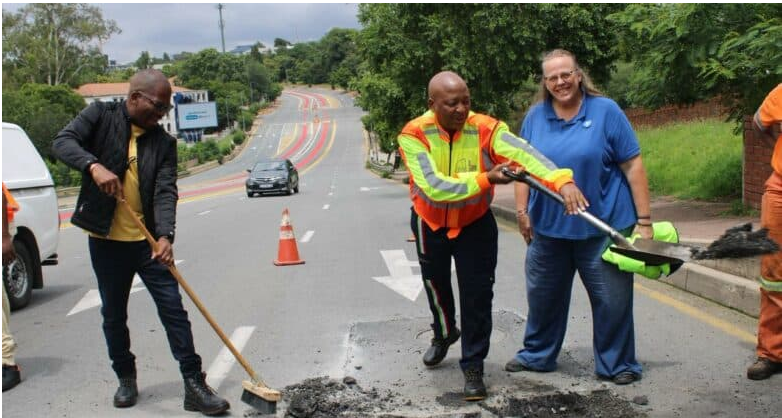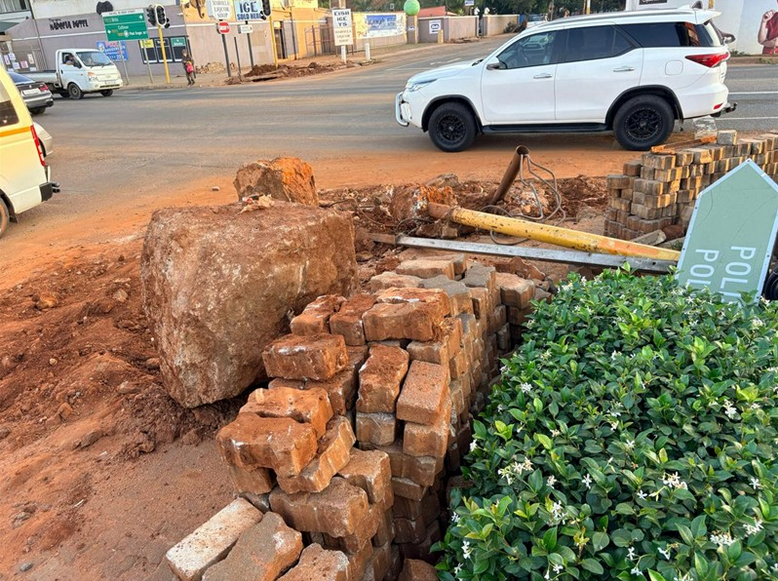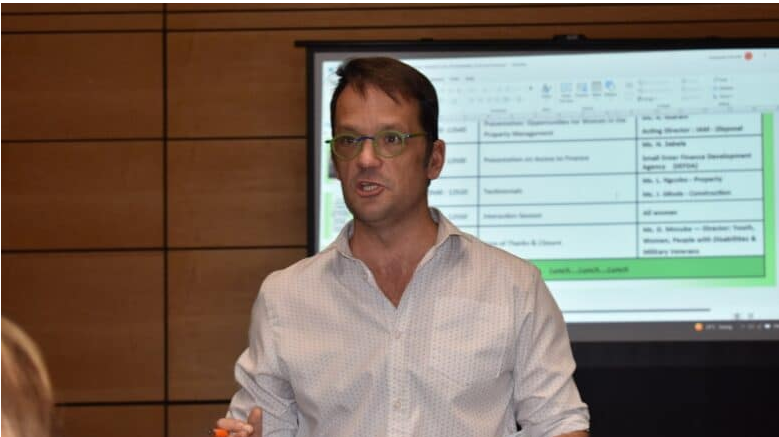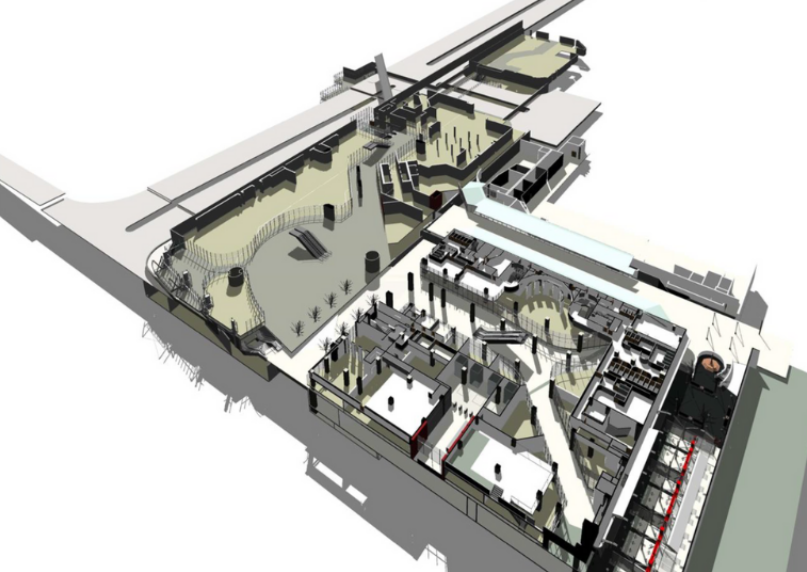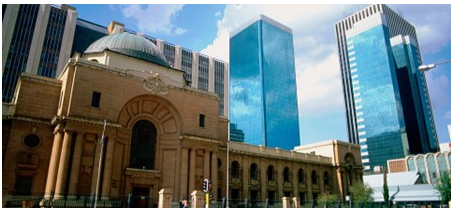Mthatha field hospitals only ready in October, oversight body told

Advertising
10-07-2020
Read : 513 times
Daily Maverick
Source
The Eastern Cape Legislature’s portfolio committee for health has requested the Department of Health to put a hold on a tender, due to close on Friday 10 July, for the construction of tent hospitals and field hospitals at seven health facilities as the province’s field hospital strategy descended into chaos.
Officials from the Eastern Cape Department of Health have told the health portfolio committee that they will have field hospitals for Mthatha ready only by October.
“We asked them outright, ‘For who are you going to get these field hospitals ready in October?’ We said: ‘No ways! The hospitals are getting full. What are you going to do?’ They never responded,” the chairperson of the Health Portfolio Committee in the Eastern Cape Legislature, Mxolisi Dimaza, said on Thursday 9 July. Officials were showing the portfolio committee hangers at Mthatha airport that they wanted to convert to a field hospital.
“The next thing, we see some kind of tender for marquee tents to be used as hospitals. These are very expensive tents. We want this to be put on hold. I have sent a message this morning to the head of the health department and also a formal letter. Why were these plans not shared with the portfolio committee? I asked. Why do you want to use a tent? We thought we were renovating government buildings.
“Public Works told us they are ready but they are not getting anything from the Department of Health. They can move fast to get buildings ready for these field hospitals.
“You can just imagine how cold a tent will be,” he said.
As of Wednesday 8 July, there were close to 43,000 people with Covid-19 in the Eastern Cape with more than 24,000 recoveries and 582 deaths. On Wednesday, Department of Health officials said they were expecting the province to reach its infection peak in the last week of July.
Dimaza said the portfolio committee had given the Department of Health until close of business on Thursday to respond.
“We don’t want the tents. They are expensive and they are too cold,” he said. “I can see what they are doing. They want to force the tents on us because it is urgent.”
In a note to the superintendent-general of the department, Dr Thobile Mbengashe, he added:
“Some of us are convinced that whoever came up with this idea of tents planned it a long time ago… this is the reason that the programme of refurbishing government-owned facilities is progressing at a snail’s pace.
“Will we see a marquee for OR Tambo [Mthatha] when there are two hangers at the airport? This needs to be explained. It leaves more questions than answers.”
He confirmed on Thursday evening that no response had been received. Dimaza was adamant that a hold must be put on the tender for the marquee tents.
“They want to force us to use the tents because it is urgent – but we have said no,” he said.
According to the tender documents issued for the field hospital project, the Department is looking for 100-bed marquee hospital tents for Cofimvaba Hospital, Butterworth Hospital, Mount Ayliff Hospital, Nessie Knight Hospital, the Humansdorp Hospital, Midlands Hospital in Graaff-Reinet and the Mount Fletcher Taylor Bequest Hospital in Mount Fletcher.
The tender also requires 500-bed field hospitals, using alternative building technology, to be constructed at each site and buildings for 250 beds each in Graaff-Reinet and Humansdorp. The deadline for tender submissions is Friday 10 July.
The tents must be made available for rental while the field hospitals are being constructed and should consist of three rooms, one with 25 high care beds, one with 15 high care and 10 ICU beds, and two wards with 25 beds each.
On 30 June, Eastern Cape Premier Oscar Mabuyane said the province was “in the process” of “building” a field hospital per district that would supply an extra 500 beds in each district. He also said 34 health facilities in the province had been or were being renovated, with 20 projects completed and 12 projects scheduled for completion by the end of July and another 10 scheduled for completion by the end of August.
On Tuesday 7 July Mabuyane said the province had now taken a decision to instead convert museums, nursing colleges, school hostels and training colleges into field hospitals to provide 2,080 beds with 218 high care beds.
“Honestly speaking, where the Office of the Premier has intervened and the Eastern Cape Department of Public Works, they have tried to address the problems. It is the Department of Health that has serious challenges in managing,” Dimaza said.
He said they had raised the issue of the province seriously lagging behind in the construction of field hospitals with the department.
“The only one that is ready is the field hospital in Port Elizabeth, but that one is only ready because Volkswagen made it happen,” Dimaza said.
The Rev Dr Elizabeth Mamisa Chabula-Nxiweni Field Hospital in Port Elizabeth will provide 3,300 beds when completed. It is a joint project between Volkswagen, the Nelson Mandela Bay Business Chamber and the Nelson Mandela Bay Municipality.
The first phase of the hospital has been handed over to the Department of Health and there are currently 1,380 beds available, many with oxygen, and more than 40 patients have been hospitalised there as the metro’s public hospitals have reached capacity.
Dimaza said infrastructure issues are not being handled properly by the Eastern Cape Department of Health as the positions of chief director for infrastructure and quality control have not been filled for a very long time.
“We asked them: How can you provide accurate information for field hospitals? You have no management that is looking into this? This is how we came to understand why things are not dealt with properly.
“The Eastern Cape is a rural province,” Dimaza said, “and even before Covid-19 we had many challenges. These included the conditions of the hospitals, the ambulance turnaround time and a massive shortage of staff.
“Our observation as the portfolio committee is that the Department of Health was never 100% prepared for Covid-19. In the very rural areas there is a very serious problem with staff shortages. At the hospital, the staff members were not well trained on how to manage Covid-19 patients. We see this even in the city hospitals. The hospital managers were not properly trained on how to prepare for a pandemic.”
Dimaza said the inappropriate use of personal protective equipment (PPE) in the province’s hospitals was a good example of this.
“There are zones in the hospital where you need a full suit of PPE and then there are places where you can wear less,” he said.
“Suddenly, everyone wanted everything – even those who were not working with Covid-19 patients.
“Secondly, we failed to build the right teams in our hospitals. If you read the World Health Organisation’s document on preparing for a pandemic you would see that there should be a team consisting of doctors, nurses and labour unions. They must meet and talk and assess. This way everybody can know what is going on in the hospital. This did not happen. That is why the unions are complaining all the time. The teams are missing.
“The other thing that is hitting the Eastern Cape so hard – even before Covid-19 – was that the department was not filling vacant posts. The Covid-19 pandemic found us with serious vacancies in our health facilities,” he said.
“Obviously, then we got nurses who were infected and we had an even worse staff problem. Even appointing staff now is not enough. You know, we raised this issue in September 2019 already. They never even responded.
“The Department of Health is having a serious crisis of management. The pandemic has exposed the weak management in our hospitals as well.”
He said the committee had been raising staff shortages and a lack of vehicles in the province’s Emergency Medical Services since 2018.
“They have 2,000 vacant posts. It has been a crisis for a very long time,” he said.
“Those who are employed are also not always paid what they are owed. All these things came out and manifested themselves in Covid-19 and it created a serious problem.”
Display Adverts
The Eastern Cape Department of Health communications director, Siyanda Manana, referred all questions to the superintendent-general, Thobile Mbengashe. Mbengashe did not respond to a request for comment. DM/MC
Recent News
Here are recent news articles from the Building and Construction Industry.
Have you signed up for your free copy yet?
